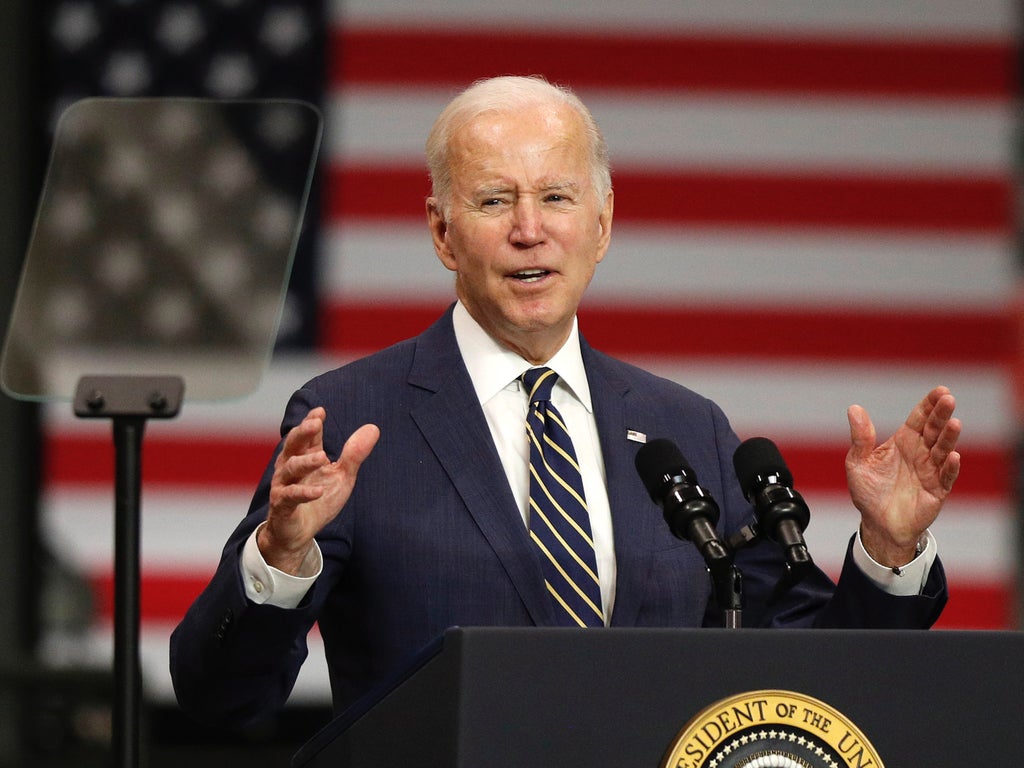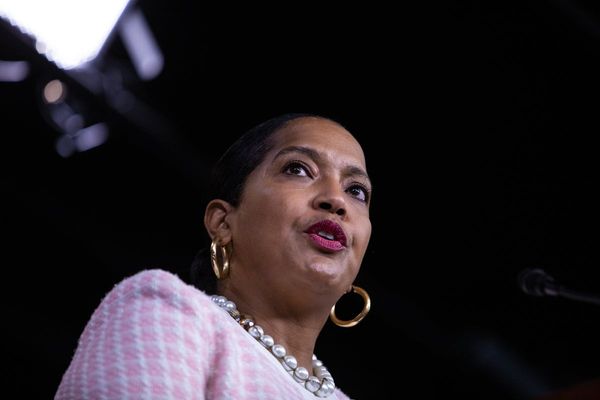
The $7bn (£5.1bn) of cash reserves belonging to Afghanistan’s central bank that have been frozen in the United States since the Taliban seized control of that country will be transferred to the New York Federal Reserve Bank so the Biden administration can use them to benefit the Afghan people and compensate victims of the 11 September 2001 terrorist attacks.
US President Joe Biden on Friday signed an executive order invoking national emergency powers to seize “all property and interests in property” belonging to the Da Afghanistan Bank and direct them to a single “consolidated account” at the New York branch of the US central bank.
The White House said in a statement announcing the order that the measure was “one step forward in the United States’ effort to authorize the transfer of a significant portion of the funds to meet the needs of the Afghan people”. It is meant to provide a way for the funds to be used to benefit the Afghan people through non-governmental organisations and relief agencies while keeping them out of reach for the Taliban, which is subject to US sanctions as a terrorist group.
In his order, Mr Biden found that the “widespread humanitarian crisis” brought on by the Taliban’s return to power justified the seizure, which will US to take steps to provide for the Afghan people’s “urgent need” for food, water, and other “basic human needs” and avert a “a deepening economic collapse”.
Mr Biden also noted that seizing the funds would aid efforts by victims of the 2001 terrorist attacks to pursue legal claims that could entitle them to roughly half the funds held in the US.
Many of those affected by the attacks, which killed 2,977 people and injured hundreds, have long sought financial compensation for the terror attacks from the Taliban under the terms of a 1996 US law allowing victims of terrorist attacks to sue foreign governments if they had been designated state sponsors of terrorism.
Although victims of the 2001 attacks had sued the Taliban in 2002 and a judge had found the terrorist group — which functioned as Afghanistan’s de facto government from 1996 to 2001 — was financially liable for the 2001 attacks, the same 2011 ruling did not extend to the US-backed government established after the Taliban were driven from power after the 2001 US invasion.
But the Taliban’s return to power in Afghanistan puts those funds back in play for the 9/11 victims and their families. The Taliban has long been designated a terrorist organisation by the US government, and after they seized control of the country following the US withdrawal after 11 years of war, the Biden administration froze the funds.
“While this E.O. will help preserve a substantial portion of Afghanistan’s reserves to benefit the Afghan people, we understand there are no easy solutions for Afghanistan’s economic challenges, which have been exacerbated by the Taliban’s forced takeover of the country,” the White House said, adding that the US “will continue to work tirelessly with the international community to ensure that humanitarian assistance and other support flows to the people of Afghanistan”.
The inclusion of charities operating in the country will address some concerns around the current humanitarian crisis in Afghanistan, which has been badly hit by funding crises.
Nearly 80 per cent of the money for the previous Afghanistan government’s budget came from international sources, forcing the Taliban to call for help amid limited food supplies.
The terrorist group reportedly oppose the US splitting the $7bn in assets.







